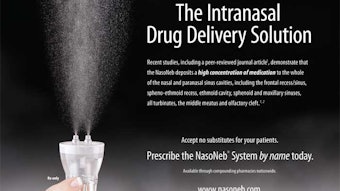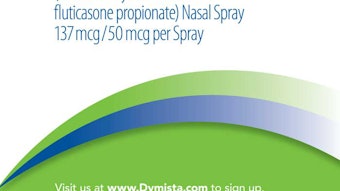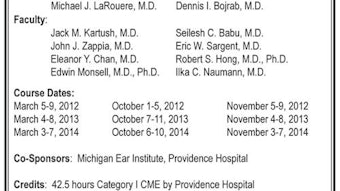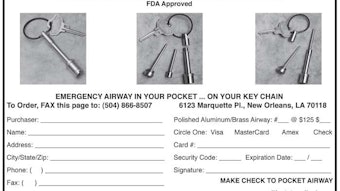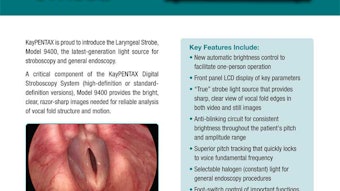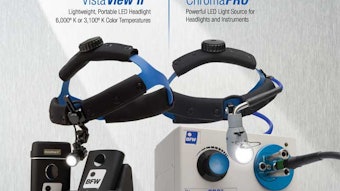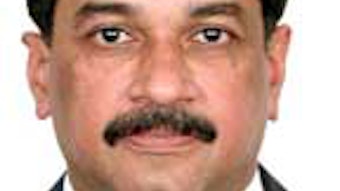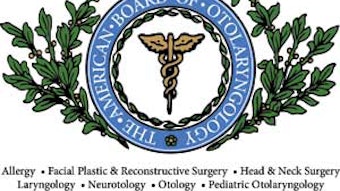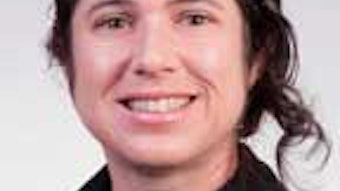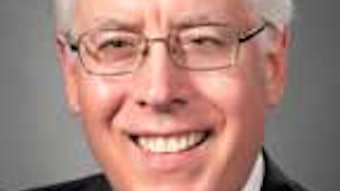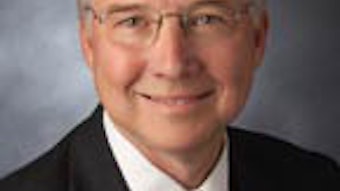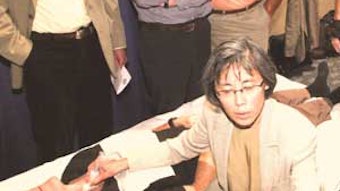Maintenance of Certification: Living the Dream
Liana Puscas, MD, AAO-HNS Liason to the AMA I still remember the cover letter on my otolaryngology-head and neck surgery residency application explaining that starting in 2002, the American Board of Otolaryngology (ABOto) would issue time-limited certificates of 10 years’ duration. If only I could have been in the queue just one year earlier. How nice it would have been to be grandfathered in and not worry about maintenance of certification (MOC). It is now 10 years and one MOC exam later, and my attitude has changed. Not because I enjoy taking tests and paying fees, but because I understand now, better than I did then, the immense responsibility we have as physicians in taking care of patients. Despite the positive influence of educated patients on healthcare, physicians still direct patient care due to their knowledge and experience. Therefore, it is incumbent on physicians to stay current with the literature and change their practices accordingly. Intuitively, our profession understands that this is necessary. We pride ourselves on providing patients with good care. We study and work hard and expend much effort in the care of our patients. We get frustrated with noncompliant patients because we know they are sabotaging their own health. And we get really frustrated with third parties who interfere with our delivery of patient care. All of these symptoms signify an innate desire to do the best we can for our patients and live up to high standards. Medicine has a rich history of establishing standards to safeguard patients. The AMA was founded in 1847 in response to concerns about the number of uneducated quacks peddling at best useless, and at worst, dangerous medical “therapies.” At its inaugural meeting, delegates adopted the first code of medical ethics and established the first nationwide standards for preliminary medical education and the degree of MD.1 State medical boards and specialty boards were likewise established to create and hold physicians to agreed standards. Initial specialty board certification establishes minimum competency at the completion of training. MOC is the natural result of this entire process. Having taken the MOC exam, I will candidly say that some of the questions clearly reflected the bias of some institutions and their approach to head and neck cancer. And there were several granular questions that were irrelevant to my ability to provide good patient care. Is a MOC exam the best way to measure competency? No. Did it make me a better technical surgeon? No. Do I receive CME credit for the ABOto’s mandated MOC modules? No. But did I read and study in preparation for the exam? Yes. Did I review seminal articles in our literature? Yes. Does participation in MOC give my patients reassurance that I am keeping up with the newest advances in my field? Yes. Does MOC provide assurance to the public that we are continually striving to keep physicians accountable? Yes. MOC does not replace personal insight into individual ability or personal commitment to continued development. But it does provide an external impetus to physicians to keep up-to-date and to practice at high standards. And it gives our profession the moral high ground with patients and non-physician health providers as undeniable proof that we are continuing the tradition of keeping medicine’s standards high. For those who certified in otolaryngology prior to 2002, MOC is not part of their reality. However, according to Humayun J. Chaudhry, DO, president and CEO of the Federation of State Medical Boards (FSMB), all physicians will eventually be subject to Maintenance of Licensure (MOL). This MOL process will comprise three areas and will be phased in over the course of five to seven years: CME requirements, some type of self-assessment of knowledge/skills, and performance improvement. MOL will not require that a physician be board certified nor will it entail a high-stakes examination.2 However, the similarities between MOL and MOC are obvious. The challenge and the opportunity are to design MOC to be meaningful and practical. A process that is too “fluffy” is a disservice to patients, and a process that is too onerous is burdensome to physicians. Some solutions are obvious: give CME for MOC and MOL activities; have the American Board of Medical Specialties (ABMS) coordinate with the FSMB so that MOC activities satisfy MOL requirements (this is a stated intention of the FSMB); and create metrics that are easily tracked by physicians, but meaningful to patient outcomes. This will require effort, creativity and collaboration among the various organizations involved in CME, MOL and MOC within each medical specialty. It is imperative that physicians take the helm of these projects to avoid having these processes led by non-physician government entities—otherwise MOC/MOL will become a nightmare. References http://www.ama-assn.org/ama/pub/about-ama/our-history/the-founding-of-ama.page? HJ. Chaudhry; LA Talmage; PC. Alguire; FE. Cain; S Waters and JA. Rhyne. Maintenance of Licensure: Supporting a Physician’s Commitment to Lifelong Learning. Annals of Int Med 157 (4):1-4.
Liana Puscas, MD, AAO-HNS Liason to the AMA
I still remember the cover letter on my otolaryngology-head and neck surgery residency application explaining that starting in 2002, the American Board of Otolaryngology (ABOto) would issue time-limited certificates of 10 years’ duration. If only I could have been in the queue just one year earlier. How nice it would have been to be grandfathered in and not worry about maintenance of certification (MOC).
It is now 10 years and one MOC exam later, and my attitude has changed. Not because I enjoy taking tests and paying fees, but because I understand now, better than I did then, the immense responsibility we have as physicians in taking care of patients. Despite the positive influence of educated patients on healthcare, physicians still direct patient care due to their knowledge and experience. Therefore, it is incumbent on physicians to stay current with the literature and change their practices accordingly.
Intuitively, our profession understands that this is necessary. We pride ourselves on providing patients with good care. We study and work hard and expend much effort in the care of our patients. We get frustrated with noncompliant patients because we know they are sabotaging their own health. And we get really frustrated with third parties who interfere with our delivery of patient care. All of these symptoms signify an innate desire to do the best we can for our patients and live up to high standards.
Medicine has a rich history of establishing standards to safeguard patients. The AMA was founded in 1847 in response to concerns about the number of uneducated quacks peddling at best useless, and at worst, dangerous medical “therapies.” At its inaugural meeting, delegates adopted the first code of medical ethics and established the first nationwide standards for preliminary medical education and the degree of MD.1 State medical boards and specialty boards were likewise established to create and hold physicians to agreed standards. Initial specialty board certification establishes minimum competency at the completion of training. MOC is the natural result of this entire process.
Having taken the MOC exam, I will candidly say that some of the questions clearly reflected the bias of some institutions and their approach to head and neck cancer. And there were several granular questions that were irrelevant to my ability to provide good patient care. Is a MOC exam the best way to measure competency? No. Did it make me a better technical surgeon? No. Do I receive CME credit for the ABOto’s mandated MOC modules? No.
But did I read and study in preparation for the exam? Yes. Did I review seminal articles in our literature? Yes. Does participation in MOC give my patients reassurance that I am keeping up with the newest advances in my field? Yes. Does MOC provide assurance to the public that we are continually striving to keep physicians accountable? Yes.
MOC does not replace personal insight into individual ability or personal commitment to continued development. But it does provide an external impetus to physicians to keep up-to-date and to practice at high standards. And it gives our profession the moral high ground with patients and non-physician health providers as undeniable proof that we are continuing the tradition of keeping medicine’s standards high.
For those who certified in otolaryngology prior to 2002, MOC is not part of their reality. However, according to Humayun J. Chaudhry, DO, president and CEO of the Federation of State Medical Boards (FSMB), all physicians will eventually be subject to Maintenance of Licensure (MOL). This MOL process will comprise three areas and will be phased in over the course of five to seven years: CME requirements, some type of self-assessment of knowledge/skills, and performance improvement. MOL will not require that a physician be board certified nor will it entail a high-stakes examination.2 However, the similarities between MOL and MOC are obvious.
The challenge and the opportunity are to design MOC to be meaningful and practical. A process that is too “fluffy” is a disservice to patients, and a process that is too onerous is burdensome to physicians. Some solutions are obvious: give CME for MOC and MOL activities; have the American Board of Medical Specialties (ABMS) coordinate with the FSMB so that MOC activities satisfy MOL requirements (this is a stated intention of the FSMB); and create metrics that are easily tracked by physicians, but meaningful to patient outcomes. This will require effort, creativity and collaboration among the various organizations involved in CME, MOL and MOC within each medical specialty. It is imperative that physicians take the helm of these projects to avoid having these processes led by non-physician government entities—otherwise MOC/MOL will become a nightmare.
References
- http://www.ama-assn.org/ama/pub/about-ama/our-history/the-founding-of-ama.page?
- HJ. Chaudhry; LA Talmage; PC. Alguire; FE. Cain; S Waters and JA. Rhyne. Maintenance of Licensure: Supporting a Physician’s Commitment to Lifelong Learning. Annals of Int Med 157 (4):1-4.

